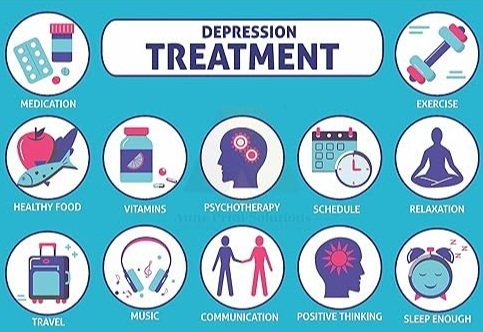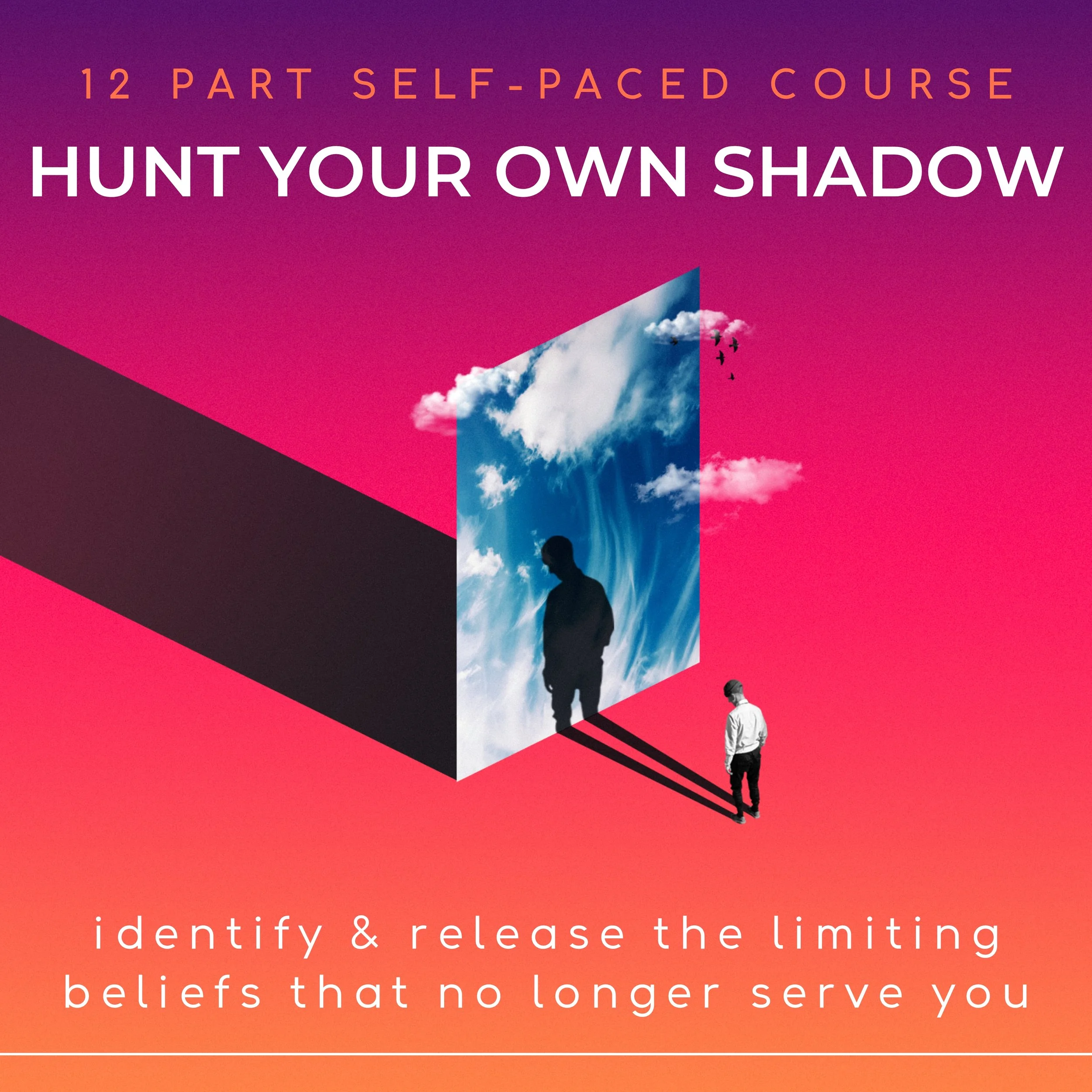Do Antidepressants Make You Emotionless?
Antidepressants are one of the most commonly prescribed treatments for depression, but how effective are they, and what should you consider before taking them? Do antidepressants make you emotionless too?
Mental health is complex, and while medication can be a helpful tool, it’s not a one-size-fits-all solution. In this post, I draw on my lived experience with mental health challenges, as well as my extensive work in mental health advocacy, to provide an honest perspective on antidepressant medication.
Below I will explore emotional blunting and the question of antidepressants making you emotionless, as well as benefits and limitations, and alternative treatments for depression, helping you make a more informed decision about your mental health journey.
Emotional Blunting
Antidepressants, particularly selective serotonin reuptake inhibitors (SSRIs) and serotonin-norepinephrine reuptake inhibitors (SNRIs), can sometimes cause emotional blunting or a feeling of emotional numbness in some people. This side effect doesn’t happen to everyone, but here’s what it involves:
There is an alteration in emotional processing. Antidepressants regulate neurotransmitters like serotonin and norepinephrine, which can dampen both negative and positive emotional intensity, leading to feeling like all the highs and lows of life are gone.
For some, emotional blunting might feel like relief from overwhelming sadness or anxiety. However, it can also reduce the capacity to feel joy or deep connection.
Higher doses are more likely to cause emotional blunting, and adjusting the dosage might alleviate this effect.
So Do Antidepressants Make You Emotionless?
In my work I often get asked the question, do antidepressants make you emotionless? Short answer, yes for me at least. Long answer, it’s complicated.
I grew up living in the household of an addict, paranoid schizophrenic, chronic hoarder and drug dealer. This left me psychologically damaged.
Throughout my life, my mental health has gone up and down dramatically. At my worst, I had issues with substance abuse, self-harm and suicidal idealisation. On more than one occasion I almost followed through. Eventually I went to a doctor and was put on some antidepressants.
The antidepressants saved my life. There was a long time that without them I would have ended it all. However, despite being great at keeping me alive, they were certainly not ideal. Regardless of the type I tried, I faced the same issues.
First were the debilitating side effects.
I faced constant nausea and headaches as well as issues with perception and balance. I couldn’t drive, eat or even watch television. I was forced to stay in bed and just rest. This was clearly not ideal, but after two weeks these symptoms started to disappear and after a month I returned to normal.
Psychologically, I was doing better after taking antidepressants. Scores on a variety of psychometric testing indicated significant improvements and I was no longer suicidal. My doctor marked me down as a successful case and began to monitor me with declining frequency.
Having been so low for so long, once the side effects wore off, I was in a state of relief. However, I didn’t feel completely like myself anymore, something was off. The extreme lows were gone, but so too were the highs. I started wondering, do antidepressants make you emotionless?
The medication had the effect of moving me into what felt like a narrow range of existence. Life was just dull. Neither good nor bad, just ‘meh’. It was like the volume was turned down, colours were muted, the excitement gone. I lost interest in the activities that I once found enjoyable and began to lose contact with close friends. I just seemed to be floating moment to moment, going through the motions of each day until it came time to sleep.
I no longer wanted to kill myself, but I also couldn’t feel the joys of life that make it worth living.
After a few months of living in ambiguity, I realised what was happening and I didn’t like it. I wasn’t sure what to do. It felt like I faced the choice between living a muted existence or not living at all. There had to be another way. So upon a friend’s advice, I started seeing a psychologist for regular therapy sessions (great idea) and stopped antidepressants cold-turkey (horrible idea).
Alternative Treatments For Depression
Thankfully I was now receiving expert help. I was finally receiving expert advice in relation to my mental health and starting to talk about alternative treatments for depression. My psychologist was able to recognise my problems and help me move towards recovery. She also worked me through the transition off medication and initiated other forms of therapy. I started trying alternative treatments for depression, that worked better for me and had less side effects, and thankfully were not causing emotional blunting and making me emotionless like the antidepressants had been. Medication became a backup to be used if my mental state falls significantly.
Please don’t get me wrong, I am by no means saying that antidepressants should not be used. They should. If an expert is suggesting that they could be a solution for you, please listen because they do work. I will go back on them if necessary. But as a long term fix I am not a fan. They should never be the only intervention strategy. They should be used in conjunction with other bio-psycho-social treatments that together will all transform a person’s life. This is where alternative treatments for depression come into play.
Combination and Alternative Treatments for Depression:
While antidepressants can be helpful for many people, they are not the only option for managing depression. In fact, the most effective approach often involves a combination of treatments that address mental, emotional, and physical wellbeing. It was with this attitude that I’ve been trying combination and alternative treatments for depression.
From therapy and lifestyle changes to holistic practices and emerging treatments, there are many ways to support mental health beyond medication. So let’s explore some alternative and combination treatments that can be used alone or alongside antidepressants to create a more personalized and well rounded approach to healing.
Combination treatments involve using antidepressants alongside other methods, such as therapy, exercise, meditation, dietary changes, or alternative treatments like acupuncture or supplements. The idea is to take a holistic approach, addressing multiple aspects of mental health rather than relying solely on medication. Studies suggest that combining antidepressants with therapy, for example, leads to better long-term outcomes than using medication alone. This method will also increase the chances you can use a lower dose of antidepressants, as well as hopefully decreasing the side effects. If you are finding that antidepressants are making you emotionless, you may want to try this method.
Some people choose to wean off antidepressants altogether, and use the alternative treatments - and of course you can and should use a combination of these! The more you do for yourself, the better your mental health will get in the long term. I know in the short term it can feel like you’re fighting a multi headed hydra, as you try one treatment at a time and are not sure of the results. I know the feeling! However, don’t give up, and keep trying and adding treatments that you know will help, and over time you will see many benefits.
Here are some examples you can try as alternative and combination treatments for depression:
Sport and Exercise - exercise releases positive hormones, gets the blood pumping and makes you feel good. In addition, the social aspect of a sport cannot be understated – the friends and comradery gained can last a lifetime.
Writing - this has been the best form of therapy for me and I couldn’t recommend it more. Poetry, free writing, fiction or a simple diary, the choice is yours. Through writing, you can privately express everything, honing the words until they perfectly reflect how you feel.
Reading - is one of the best forms of mindful distraction. Reading forces you to focus on the present moment which, for the duration of the read, is in a fictional universe. Focused attention to the present moment has tremendous benefits for mental health and the escapism aspects of fiction cannot be understated.
Good Diet - you are what you eat, literally. Your brain is just another organ of the body and as such it is vital that it is being properly maintained. A good diet that has a balance of protein, carbohydrates and fats combined with lots of water will ensure that your hardware is well maintained and working properly.
Meditation - more and more people are turning to a daily meditation practice to help calm a troubled mind. There are endless methods, books and apps available, but the key here is to develop and maintain a habit. Personally I have found that mindfulness meditation focusing on the breath, mala beads or a mantra to be particularly beneficial.
Socialization - humans are social animals, we thrive on friendships and connection. Where at all possible, make the choice to hang out with your friends, even if for only a small amount of time. If there is somebody in whom you can confide, talk with them, you will be surprised what opening up to people can do.
Goal Setting – Setting and chasing goals can be amazing, choose something that you want to accomplish and begin to work towards it. This is what life is all about, striving to achieve something. If you define your goals and display them prominently they can provide a source of drive and motivation. Just make sure they follow the SMART principle.
Psychology - professional help cannot be understated. A psychologist is somebody who has trained and has experience helping people with similar issues to what you are feeling. Feel free to try a few different ones before settling, you need to ensure a good fit.
When explaining my position on antidepressants I sometimes find that an analogy can help. It is like trying to heat a house. Using antidepressants is akin to turning the ducted heating on. The house will warm up for sure, but there are some costs involved. For a start, the whole house is warm, not just the areas that you are in. Secondly the heat generated tends to dry out your skin leading to discomfort, and finally the noise produced can be annoying.
Yes, the house is warming up, but there are some other solutions that could also help. Solutions that if implemented would be far more sustainable over the long term. Put a jumper on, close the doors, do some exercise and drink some warm tea. Perhaps over time invest in insulated windows and walls. With a strong enough heater, you could get away without these measures, but you would be forever using it – racking up a massive bill in the process.
Just like the heater, antidepressants are always there – just as a back up to be used on exceptionally cold nights.
The views expressed are the author's alone and should not replace the advice of an expert.
If this post has resonated with you, I would love your support.
Your shadow is the gateway to a more authentic you.
This course is your guide to profound inner work. Through powerful insights, guided prompts, and proven techniques, you'll navigate your shadow, heal unresolved wounds, and reintegrate the parts of yourself you’ve long ignored.
What’s Inside:
12 x Guided Meditation & Contemplations
12 x Introspective Prompts
12 x Expansion Challenges
A comprehensive instructional PDF guidebook
Unlimited email coaching for ongoing support and personalized guidance
Explore full course details and watch intro video here!
This isn’t just about healing, it’s about meeting your shadow head-on, embracing every part of yourself, and reclaiming your full power.
Are you ready to face what’s been hidden and step into your truth?


